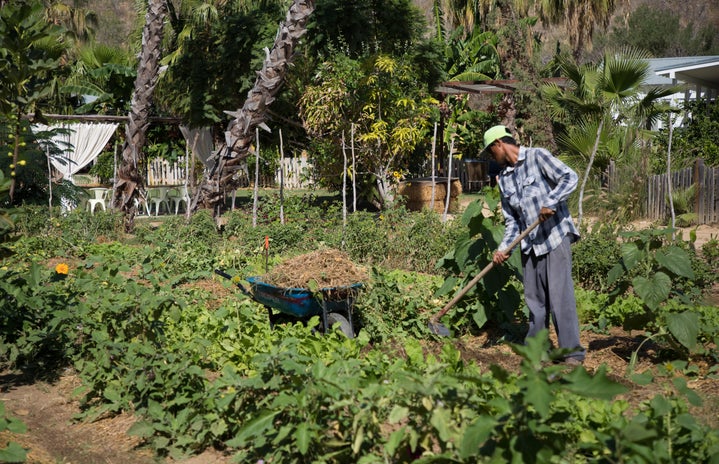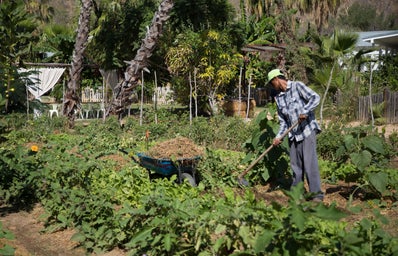“Never take anything or anyone for granted,” is an ideal most of us are faced with, no matter which side we lie on. We’ve also constantly tried to inculcate this in our lives, trying to be more conscious of the choices we make. And so, it’s also important to look at what’s overlooked. What I’m referring to here, is among the basic elements of livelihood: sustenance. Only those that don’t have it, know its value.
The agricultural society has greatly evolved over the many phases of history since the idea of settlement began to encroach upon the hunter-gatherer mindset. In the recent past, however, the phenomenal shift truly occurred during the nineteenth and twentieth centuries. While the age of modernization equipped everyone (who had the means to achieve) with the best the world had to offer, agriculture continued to be a rural entity, a sector of the economy that produces a chunk of the raw material that these pompous industries thrive on exploiting.
While these developments have become a part of our lives, farmers and their lifestyles have taken a backseat. A certain level of dehumanization has also accompanied the reality that they face today. Industrialization brought with it a promise of all-inclusive progress. The open economies promised affluent lifestyles to people but what these promises clouded was the collateral damage it would leave behind in its wake.
Across the world, the farming community almost fundamentally has been rooted in hard work, production for livelihood, and a sense of community. While new technology does bring with it a ton of incentives and the dream of modernization, it also renders traditional practices irrelevant in many cases. And one of the biggest drawbacks has been the shift to homogenized grain production, a decrease in the nutritional aspect of the agrarian sector.
As a rule, the land was used judiciously and produced a variety of foodstuffs. This diversity which hence reflected in the diets of primarily the farmers’ families or the community people has gone for a toss now. The imposition of capitalism and the standardization of cash crops or only those grains which never go out of demand to play a safe hand has left harvesters helpless. It has also resulted in an unnecessary and overly competitive market, which proves to be toxic for the farming community.
The mass production of wheat, rice, and sugarcane especially in India far outweigh any other crop. This has forced farmers from any and all regions to adopt the same practices and produce a surplus, build storage facilities, and essentially deal with all the burdens that the change brings along. The dietary implications of the excessive consumption of primarily these three food crops have been studied by various agricultural experts.
A common discussion during the past few decades has been how these experts and their work, however, has been pushed to the sidelines. With everything technology and innovation taking center stage, the narrative surrounding agriculture has become something only associated with rural life, or something which has ‘backward’ or ‘unmodernized’ undertones in India. This interchangeability of rural lifestyle with agriculture is highly misguided. As a result of which, most rural youth flock to urban areas in search of a ‘real’ job. Agriculture is left as a last resort, an unviable occupation.
This movement, coupled with the rampant over harvestation of select items has taken away the very essence of farming. The techniques may differ across the world, but the truth boils down to a very basic oversight of the attention we pay to the world of farmers. While countries with low population density, like the United States, can afford to have stretches of lands owned by well-off farmers, the case is not the same for India. Average landholding amounts to a mere 0.6 hectares which is not enough to sustain their own families. On top of that, the pressure to produce for the market and compete with their neighbors becomes a major source of distress among small and marginal farmers.
The need to mention diversity and original farming cultures helps build the argument of healthier food products that are now dwindling. Wheat was never as deeply ingrained in everyone’s lives as it is now. It has made its way into all types of diets and cuisines. Only people who can afford to live gluten-free lives are making the switch. But most people cannot afford this and stick to consuming the same wheat flour and its endless list of products. As put forth by cardiologist Dariush Mozaffarian, the pandemic had people talking about stocking PPE and ventilators, but we missed the gravity of stocking science on food and health and nutrition.
In the same argument, Mozaffarian refers to the pandemic of diet-related diseases which has gradually spread over 30-40 years. It is fair to say that the result of this pre-existing pandemic is what has perpetuated an environment where coupled with Covid-19, those with poor metabolic health have been most at risk and lost their lives. By means of McDonaldization, which has promoted the consumption of unseasonal food products, we have faced the questionable nutritional outcomes of these in the long run. This is something that needs a deeper understanding and calls for a return to simpler times that had healthier diets to offer to the world. And a healthier lifestyle to those who were behind these diets.
Recognizing this elusive and deep impact of industrial development and capitalism on farming communities and the vast arenas it stretches to is therefore important. Only after noticing these changes and how they’ve influenced our own lives can we take steps to counter them. What we need urgently is to promote diversity, de-growth in the right direction, and decentralization and standardization of agricultural practices and its use.


